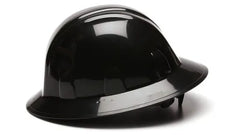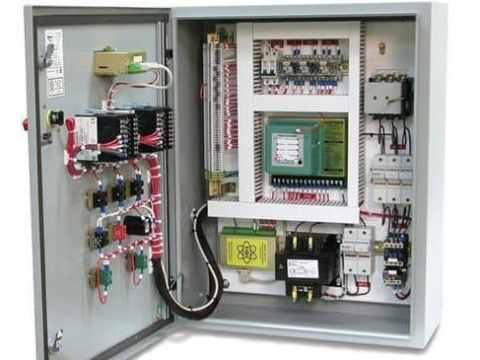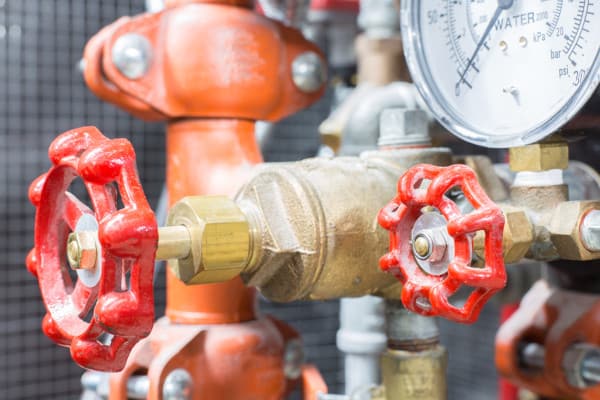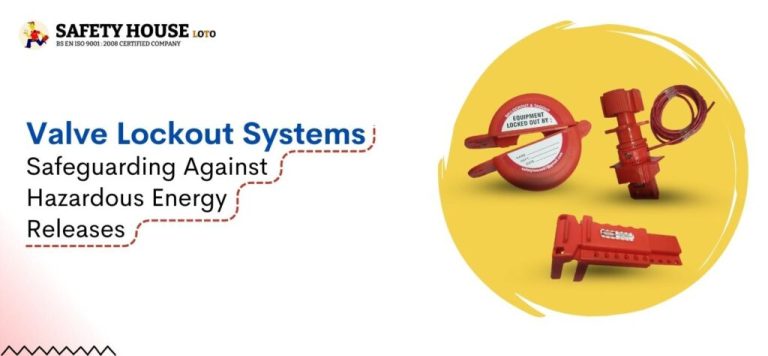Roofing Industry
Personal Protective Equipment
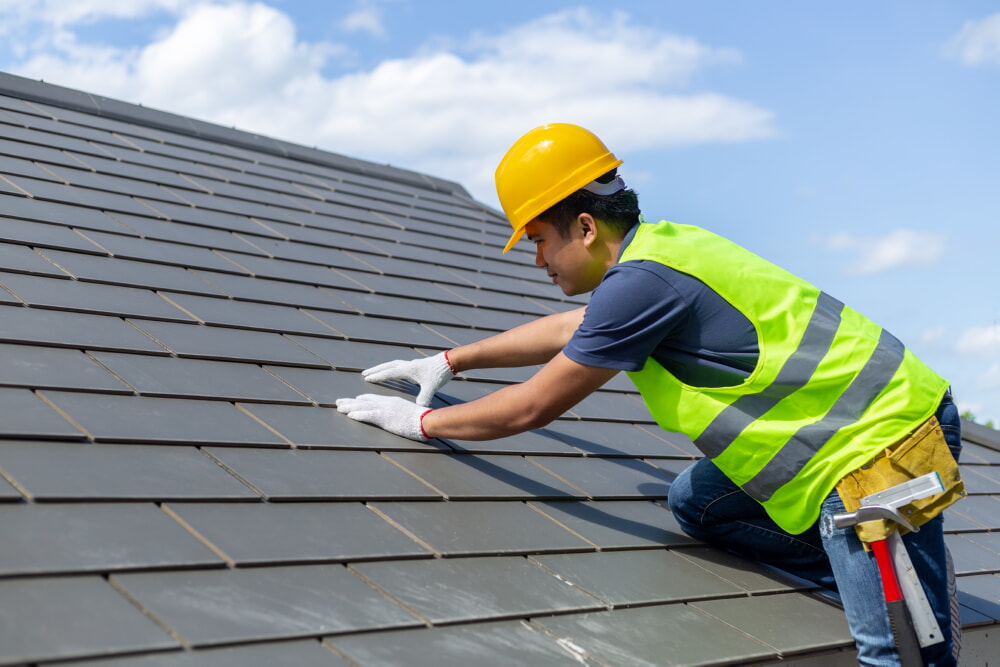
Roofing Industry
Roofers mostly work in the late spring, summer, and early fall, when the weather is nicer. However, it is also very hot. In addition to looking out for regular work injuries, roofers must also be careful of heat-related illnesses, including heat stroke. Roofers must constantly be aware of injuries caused by falling, especially on roofs that are higher than one story. They install roofs on new construction, repair roofs and replace roofs.
A roofer has a physical job of climbing, kneeling, bending, and lifting heavy objects. You might become a roofer by working an apprenticeship or through on-the-job training. According to the Bureau of Labor Statistics (BLS), roofers make median wage of $47,110 as of 2021. The BLS projects that about 15,000 new roofing jobs will open up each year.
Roofing Materials
Roofs must be strong to withstand the sun, wind, rain, hail, snow and ice. Still, if the wind is too much or the roof is older, it needs to be replaced. Roofers use various materials for new roofs, repairing roofs and replacing roofs.
The materials a roofer uses include:
- Wood, metal and tile shingles.
- Asphalt shingles.
- Clay tile shingles.
- Spanish tile.
- Slate.
- Aluminum.
- Wood.
- Steel.
- Roofing paper.
- Roofing tar.
- Metal flashing.
- Metal edge guards.
- Roofing nails.
- Roofing screws.
- Insulation.
Any of these materials could cause injuries, including cuts, lacerations, punctures, scrapes, and more. Additionally, workers could fall off the roof, fall from scaffolding, or have something dropped on them.
To help minimize the risk of injury, roofers should wear personal protective equipment (PPE). Abolox carries most of the PPE you need for a job as a roofer – and what we don’t have in stock, we could most likely source for you.
List of Employment and Occupations in the Roofing Industry
Those who work in the roofing industry include:
- Roofers – install, repair, and replace roofs.
- Helpers – workers who transport tools, hold materials, prep work sites and clean up after the job has been completed.
- Sheet metal workers – Those who work with sheet metal roofing panels.
- Construction laborers – also roofing helpers, though they may have jobs with higher skills, such as helping install a new roof.
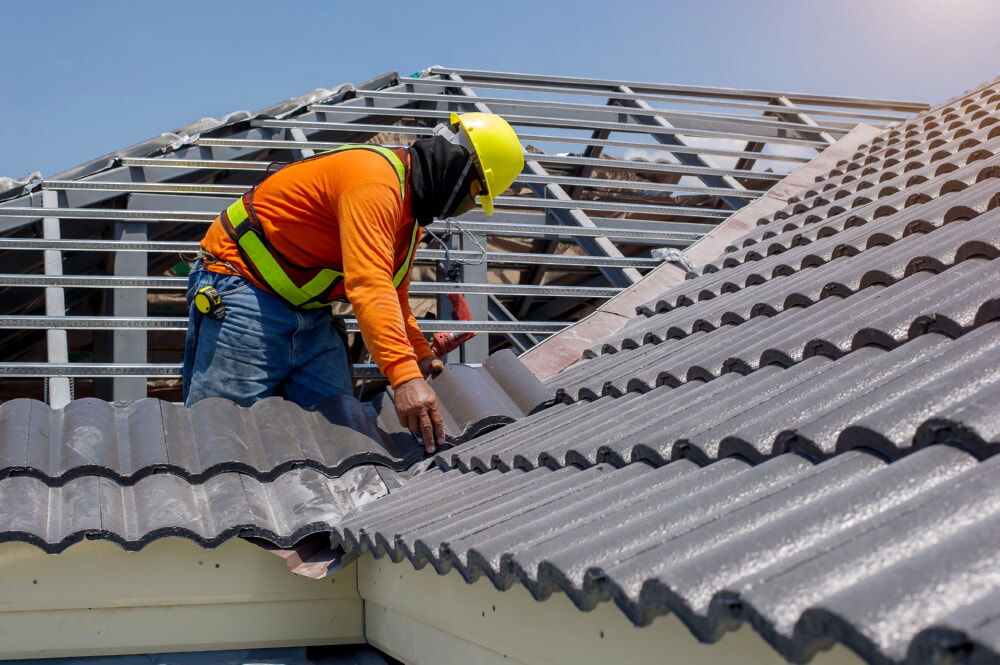
List of Work Activities in the Roofing Industry
Roofers and other workers in the roofing industry perform a variety of activities, including:
- Applying roofing materials and mortar.
- Installing roof vents.
- Attaching solar panels.
- Installing flashing, metal gutters, skylights, and roof brackets.
- Caulking.
- Carrying heavy materials, including metal panels and bundles of shingles.
- Cutting material with a utility knife.
- Repairing leaks.
- Handling tar paper, asphalt, shingles of all types, and roof sealers.
- Working with hot asphalt.
- Painting with a brush, roller, or sprayer.
- Removing roofing debris, including old shingles, tiles and old metal roofs.
- Resetting tiles.
- Sealing joints.
- Setting up scaffolding.
- Climbing ladders.
Safety in the Roofing Industry
Roofers work long hours, often in the sun. They lift heavy objects, climb ladders and scaffolding, cut roofing products with knives and saws, and use nail guns. They are often on their knees while installing shingles and other roofing material.
In addition to using good judgment and being careful with the tools they need, they need to watch for weather hazards. If they are working after a rainstorm or in the winter, the roof could be very slippery. Wind could knock a roofer off.
Roofers should be equipped with the proper personal protective equipment (PPE) to minimize injuries. Abolox carries most PPE, including clothing, safety glasses, and other items that meet industry standards.
Some of the personal protective equipment roofers require include:
- Steel toe boots.
- Hard hats.
- Safety glasses and / or goggles.
- Face protection.
- Ear protection.
- Work gloves that protect against punctures, cuts, and chemicals.
- Hi-vis clothing.
- Safety pants.
- Cooling products.
Visit Abolox for Roofing Personal Protective Equipment (PPE)
Abolox carries known brands of personal protective equipment, including raingear, gloves, head protection, eye protection and more. Whether you need to purchase PPE for yourself or your crew, browse through our PPE pages. You can order individual items or items in bulk. If you don’t see what you need, contact Abolox at the office, and we’ll source what you need.

